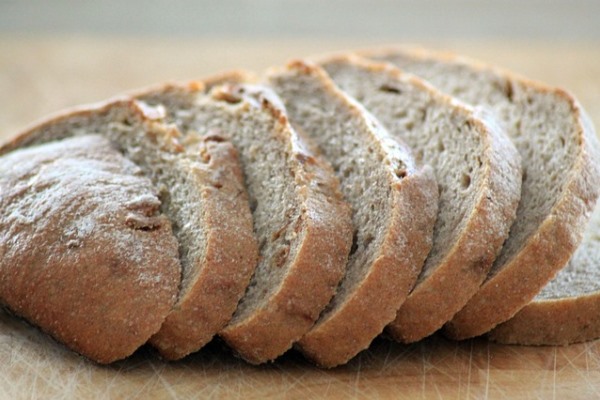Bread of life

Colin and I recently returned from a fascinating holiday in Egypt. We spent a week enjoying the wonders that lie beneath the Red Sea. Equally awe-inspiring were the wonders of the ancient world on land, and many hours were spent contemplating tombs and temples whose antiquity and preservation defy belief, dating back thousands of years BC.
As we floated over hundreds of small fields in a hot air balloon and then cruised leisurely along the banks of the Nile, following what was once this mighty river’s floodplain, we were struck by how time had stood still. From their way of life to how they dress, our impression of the many rural Egyptians we saw tending their crops and double-mounted on donkeys was that little had changed for them since Biblical times.
Against the daily news backdrop of wars and disasters, I set out to reflect here on something lighter that mankind has neither created nor destroyed and is an intrinsic part of God’s amazing creation.
Today’s blog is about basic foodstuffs. We were mostly in the South of Egypt, a long way from the main agricultural areas towards the Nile delta where the climate is less hot and the terrain less arid. Thanks to vital irrigation from the river, farmers still manage to grow field after field of cereal crops - corn and barley mostly; they also grow figs and mangos, sugar cane and dates and much more.
Bread, as in ancient times, remains the staple food at mealtimes and stalls abound at the roadsides selling freshly-baked puffy pitta breads. In one village we came across women making ‘sun bread’ - patties of dough laid out to rise in the 45-degree heat. No additives, no emulsifiers, no preservatives.
Food is another headline grabber and the current big topic is our reliance on UPFs - ultra processed foods. Essentially, the less food looks like its main ingredients and the more it contains things you don’t keep in your kitchen cupboards, the more processed it is - and the less good it is for us.
For all that, it is amazing how little basic foodstuffs have changed over the millennia. Yes we have genetically-modified and new varieties of crops and yes our methods of farming have changed radically, but by and large we still eat the same foods enjoyed by our ancestors. Our food vocabulary has expanded, and we enjoy a way more varied and multi-cultural diet in this country, but an apple is still an apple, a pomegranate is still a pomegranate and bread remains a staple of our diet.
Jesus told his disciples that he was the bread of life, anyone who comes to him will never grow hungry or thirsty. Bread had a broader meaning at that time, suggesting a meal (as in the idea of breaking bread together meant sharing a meal), rather than just some slices of Hovis but Jesus’ offer was to quench us spiritually and to sustain us into eternity. The underlying significance of Jesus’ promise in John 6 was to make us righteous in the sight of God and this invitation remains symbolic and unchanged today, like bread itself. As much as when Jesus uttered those words two thousand years ago, we must continue to put our trust in Him for the hope of eternal life.
A prayer - Father your Word is food for my soul and refreshment for my heart. Thank you for sending your precious Son into the world to be the bread that sustains me. Amen.
Image by Mupfel80 from Pixabay
Michele Marcus, 01/11/2023